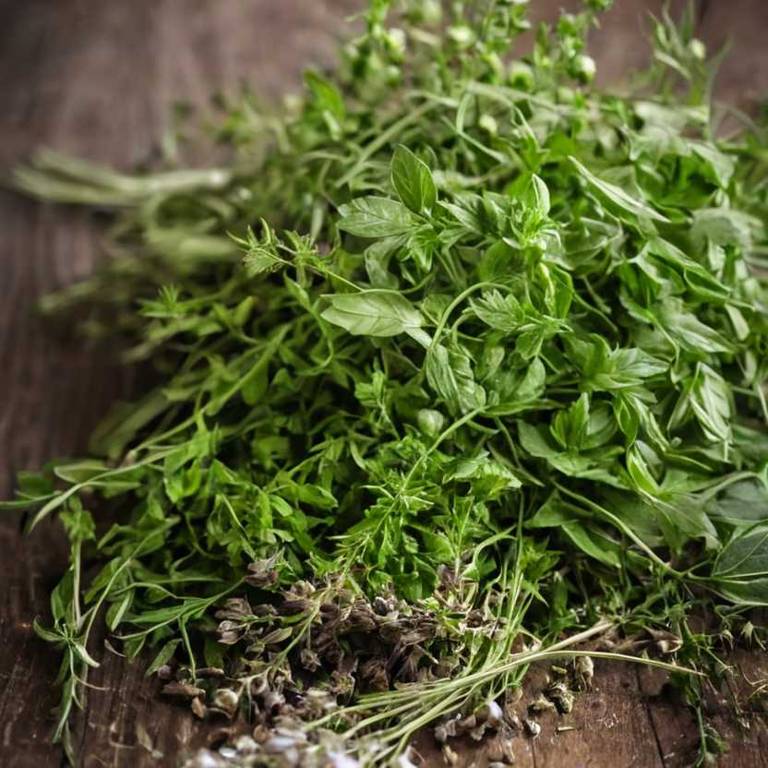10 Best Barosma Betulina Health Benefits

Barosma betulina, also known as the Cape snowbush, is a South African plant that has been traditionally used for its various health benefits.
It is rich in antioxidants, which help to neutralize free radicals in the body and reduce oxidative stress. Studies suggest that Barosma betulina may support respiratory health by alleviating symptoms of asthma and bronchitis due to its anti-inflammatory properties. The plant is also believed to have calming effects, making it useful in managing stress and anxiety.
Overall, Barosma betulina offers a range of potential health benefits, making it a valuable herb in traditional and complementary medicine.
1. Boosts immune system
Barosma betulina boosts immune system by containing bioactive compounds that support the body's natural defenses.
These compounds may enhance the production of immune cells such as lymphocytes and macrophages, which are crucial for fighting off infections. Its antioxidant properties help reduce oxidative stress, which can weaken immune function over time. Additionally, Barosma betulina may modulate inflammatory responses, contributing to a balanced immune system.
Regular consumption of this plant may therefore play a role in maintaining overall health and resilience against diseases.
2. Reduces inflammation
Barosma betulina reduces inflammation by containing bioactive compounds that inhibit the production of pro-inflammatory cytokines.
These compounds, such as flavonoids and polyphenols, help modulate the immune response and decrease oxidative stress. Studies suggest that the plant's extracts may support the treatment of inflammatory conditions like arthritis and digestive disorders. Its anti-inflammatory properties are attributed to its ability to suppress the activity of inflammatory enzymes such as cyclooxygenase.
Incorporating Barosma betulina into dietary or medicinal regimens may offer a natural approach to managing chronic inflammation.
3. Improves digestion
Barosma betulina improves digestion by stimulating the production of digestive enzymes in the stomach and intestines, which helps break down food more efficiently.
Its natural compounds, such as flavonoids and tannins, contribute to reducing bloating and indigestion by enhancing gut motility. This herb also aids in soothing the gastrointestinal tract, making it beneficial for individuals suffering from digestive discomfort. The anti-inflammatory properties of Barosma betulina further support a healthy digestive system by reducing irritation and inflammation.
Overall, it is a valuable natural remedy for promoting smooth and effective digestion.
4. Enhances mental clarity
Barosma betulina enhances mental clarity by supporting cognitive function through its rich content of bioactive compounds.
These compounds may help improve focus, concentration, and overall mental alertness. The plant's traditional use in herbal medicine suggests it may aid in reducing mental fog and promoting a sharper mind. Its potential neuroprotective properties could contribute to long-term brain health.
Incorporating Barosma betulina into one's routine may offer a natural way to support mental sharpness and emotional balance.
5. Supports heart health
Barosma betulina supports heart health by promoting the regulation of blood pressure and improving circulation.
This plant contains bioactive compounds that may help reduce oxidative stress and inflammation, both of which are linked to cardiovascular diseases. Its antioxidant properties contribute to the protection of heart tissues from damage caused by free radicals. Additionally, Barosma betulina may assist in maintaining healthy cholesterol levels, further supporting overall cardiac function.
Regular consumption of this herb could potentially enhance heart health and reduce the risk of related conditions.
6. Aids in weight loss
Barosma betulina aids in weight loss by enhancing metabolic rate and promoting fat oxidation.
This herb contains bioactive compounds that may regulate appetite and reduce cravings, supporting healthier eating habits. Studies suggest that it may also improve insulin sensitivity, which is crucial for maintaining a healthy weight. Additionally, its antioxidant properties help reduce oxidative stress, which is often linked to obesity.
Incorporating Barosma betulina into a balanced diet and lifestyle can be a natural complement to weight management efforts.
7. Promotes skin health
Barosma betulina promotes skin health by providing essential nutrients that support the skin's natural repair processes.
It is rich in antioxidants, which help neutralize free radicals and reduce oxidative stress, a major contributor to skin aging and damage. The plant's anti-inflammatory properties can soothe irritated skin and reduce redness, making it beneficial for individuals with sensitive or acne-prone skin. Additionally, its ability to enhance collagen production can improve skin elasticity and overall texture.
Regular use of Barosma betulina in skincare formulations may lead to a more youthful and radiant complexion.
8. Improves sleep quality
Barosma betulina improves sleep quality by promoting relaxation and reducing anxiety, which are common contributors to sleep disturbances.
The plant contains bioactive compounds that may help regulate the nervous system, leading to a more restful state. Studies suggest that its calming properties can enhance the duration and depth of sleep, allowing for better rest and recovery. Regular consumption of Barosma betulina in appropriate forms, such as teas or supplements, may support consistent sleep patterns.
As a natural remedy, it offers a safe alternative for individuals seeking to improve their sleep without relying on pharmaceutical interventions.
9. Boosts energy levels
Barosma betulina boosts energy levels by enhancing metabolic processes through its rich content of bioactive compounds.
This plant contains antioxidants and essential nutrients that support cellular function and reduce fatigue. Its adaptogenic properties help the body manage stress, which in turn can lead to improved vitality. Regular consumption of Barosma betulina may contribute to sustained energy throughout the day.
As a natural supplement, it offers a safe and effective way to enhance overall physical and mental performance.
10. Supports liver function
Barosma betulina supports liver function by promoting the detoxification processes within the liver.
It contains bioactive compounds that may help reduce oxidative stress and inflammation, which are commonly associated with liver damage. This herb is believed to enhance the liver's ability to metabolize toxins and regenerate damaged cells. Its hepatoprotective properties make it a valuable natural remedy for supporting overall liver health.
Regular use of Barosma betulina may contribute to maintaining optimal liver function and preventing liver-related disorders.